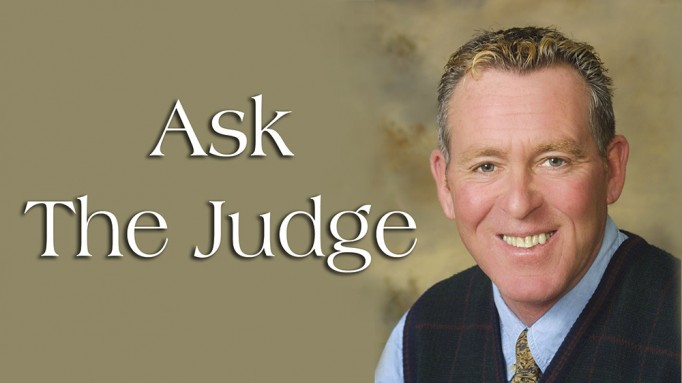At the end of a course, a rider simply pulls up and and walks out of the ring, instead of doing a lead change and completing a final circle. How hard are you on that?
In my books, that constitutes cheating by not finishing the components of the course properly, so I will be hard on that in my scoring. The rider needs to get the lead change, circle nicely with a progression back down to the walk, and then exit the ring.
How do you feel about a rider wearing sunglasses in a hunter class?
It doesn’t bother me at all, as I am judging the horse, not the rider. If you feel you need them that is up to you; I will not in any way count it against your performance.
How serious is it when a horse begins to play after the jump?
A judge needs to watch carefully to determine if the play is vicious, excited, fresh, or just an innocent expression of happiness – the horses using all of his parts and feeling good – and should not penalize the latter. A judge’s job is to interpret this activity and rule as innocent or guilty!
In a ride-off test you are asked to jump any four jumps in any order. There is a combination labeled A & B. Is that considered one or two jumps?
You have no idea how many people think that since they are labeled A & B, they are considered one jump. They are two elements and two separate jumps.
If a rider goes off-course, do you just note it on your card or do you have it announced?
When a rider goes off-course it needs to be announced so that they are aware of it, as well as the next rider. If a rider is uncertain of the course, they should check if they have the same course as posted at the in-gate, or they can consult with the course designer to be certain.
When juniors jog back their horses or ponies, they are required to wear a helmet – but does it need to be fastened?
Just as while performing, yes indeed, the helmet needs to be fastened. In the US the wearing of a helmet during a jog is not required – but it should be. There is a very real danger of being kicked, particularly when they jog back so close to each other.
If you are watching the schooling area and see something you don’t like, such as excessive use of a crop or abusing the horse’s mouth, can you do something about it? Will it have any influence on your scoring when they come into the ring to show?
First of all, you need to call the steward and make them aware of the situation so they can address it. When it then comes to showing in front of me, I will be fair, but it doesn’t reflect favourably upon you. Sportsmanlike conduct that considers the welfare of the horse is always the best preparation.
If you are judging and notice on your course charts that the course does not meet the requirements for the class (e.g., not enough jumps, not enough lead changes, no in-and-out) what should you do?
Do not just ignore it; as the judge you are also responsible for the course meeting the class requirements. I would bring the course designer over and kindly draw his/her attention to the omission or error so it can be corrected on the course, and on the course chart posted at the in-gate.

